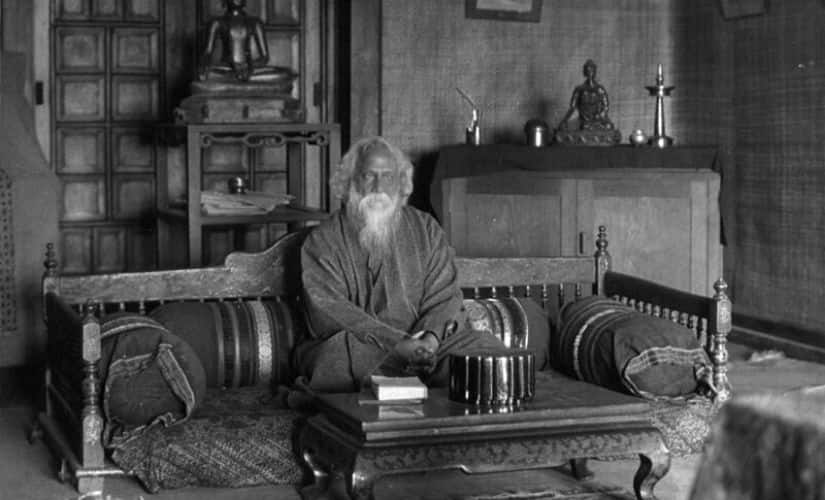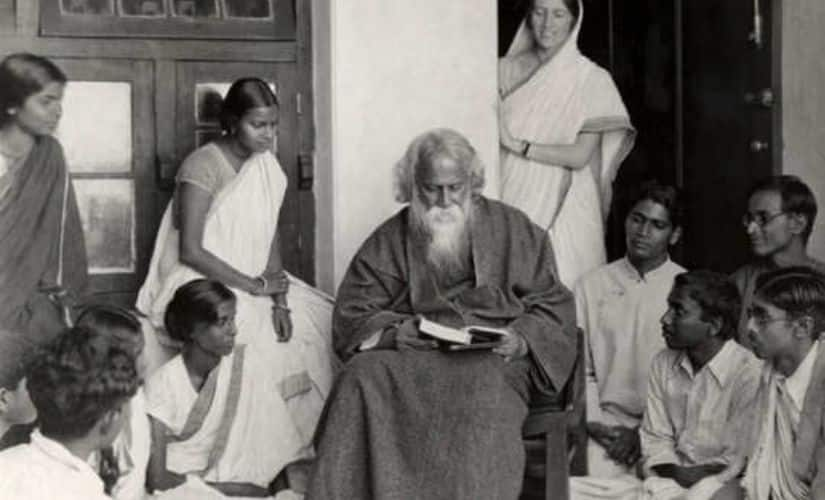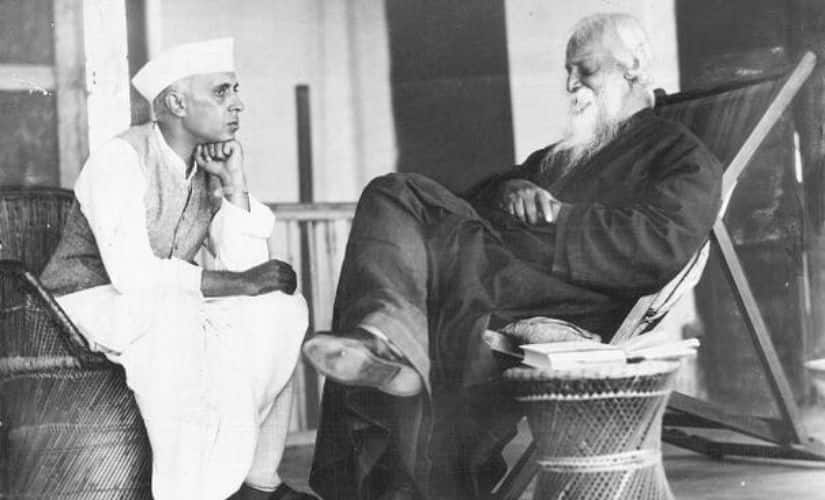During January this year, in the backdrop of a country rife with protests against the Centre’s contested Citizenship Amendment Act (CAA), National Register of Citizens (NRC), and the National Population Register (NPR), I met celebrated Carnatic classical vocalist TM Krishna for an interview. It was merely days after he had first sung the verses from our National Anthem that are conventionally left out, thereon incorporating this act into every public performance of his that followed. “Rabindranath Tagore did not only give us the National Anthem, he also gave us a protest song ,” he said to me. Indeed, a protest song like no other, as the youth leading the movement against the current dispensation’s divisive politics subverted the anthem, dismantling its misplaced position in theatres and reinstating it on the streets — its site of origin. Later that evening, as Krishna performed the unsung verses on the steps of the Victoria Memorial Hall at the Tata Steel Kolkata Literary Meet, his voice enveloped the glacial walls of the structure with an unnerving warmth. You could sense him meditate the words, eyes shut, letting each syllable overcome his being, as he paused to appraise his emotions every other moment. [caption id=“attachment_8343111” align=“alignnone” width=“825”]  Rabindranath Tagore in the year 1925[/caption] অহরহ তব আহ্বান প্রচারিত, শুনি তব উদার বাণী হিন্দু বৌদ্ধ শিখ জৈন পারসিক মুসলমান খৃস্টানী Your call is announced continuously, and we heed your gracious call. The Hindus, Buddhists, Sikhs, Jains, Muslims, and Christians As Krishna’s voice echoed these lines by Tagore describing India as a custodian of religious plurality, I was almost instantly taken back to a conversation with a friend, whom we shall refer to as A. On one of her recent trips back to Kolkata from Delhi aboard the Rajdhani Express, A shared compartment-space with a family from Bangladesh (another nation that has adopted a Tagore song as its anthem), who, on learning that she identified as a Bengali-Hindu, were left scratching their heads. “But you are a Bengali, right? So shouldn’t you be a Muslim?” they asked her out of genuine incomprehension, not communal bigotry. “No,” she said, “I am a Bengali born into a Hindu family in Calcutta.” Her fellow travellers could barely trust their ears, since what they heard sounded outlandish. [caption id=“attachment_8343121” align=“alignnone” width=“825”]  Rabindranath Tagore reading to others[/caption] For a nation reeling under the burden of its homogenous ethno-religious identity, its neighbour’s passports — which have so far refused to acknowledge religion as a marker of identity — expectedly rouse discomfiture and suspicion. The irony of this incident, however, is not lost on me, as it holds a mirror to India’s imminent future. In times like these, Tagore’s forewarning must be heeded. “What is the Nation?” Tagore asks in his essay titled ‘Nationalism in India’. “It is the aspect of a whole people as an organised power. This organisation incessantly keeps up the insistence of the population on becoming strong and efficient,” he goes on to answer. “But this strenuous effort after strength and efficiency drains man’s energy from his higher nature where he is self-sacrificing and creative. For thereby man’s power of sacrifice is diverted from his ultimate object, which is moral, to the maintenance of this organisation, which is mechanical.” Tagore unequivocally contests the ideals of modern-day nation-building, where he believes this ‘effort’ put into running the machinery lends a false sense of satisfaction and “moral exaltation” to man, thereby rendering him as “supremely dangerous to humanity”. “By this device the people which loves freedom perpetuates slavery in a large portion of the world with the comfortable feeling of pride of having done its duty; men who are naturally just can be cruelly unjust both in their act and their thought, accompanied by a feeling that they are helping the world to receive its deserts; men who are honest can blindly go on robbing others of their human rights for self-aggrandisement, all the while abusing the deprived for not deserving better treatment,” he says. This lecture, coupled with his ‘Nationalism in Japan’, ‘Nationalism in the West’, and the English translation of his Bengali poem ‘Shatabdi’r Shurjyo’ (‘The Sunset of the Century’) were published as a collection by Macmillan, New York in the year 1917, much to the ire of his readers across borders. Unsurprisingly, the philosopher-poet was consequently denounced as an ‘anti-national’ and ‘traitor’ in various quarters, including the Indian culturati. His then-inopportune words now find widespread resonance in a world that has surmounted the horrors of two world wars, the 9/11 attacks, devastating communal strife, and an ongoing calamitous pandemic. [caption id=“attachment_8343141” align=“alignnone” width=“825”]  Rabindranath Tagore with Jawaharlal Nehru[/caption] In the wake of the Tablighi Jamaat event that was held in Delhi in March this year — with the Nizamuddin Markaz claiming to have received over 2,500 visitors for the congregation between 11 and 13 March, a period when the Union government had clearly declared COVID-19 as “not a health emergency” — agents of the ruling party, various news outlets and social media wasted no time in declaring the incident as the most potent vector for the contagion in India, with terms like ‘Jamaat Virus’, ‘Tablighi Virus’ and ‘Corona Jihad’ doing the rounds soon after. While the Tablighi Jamaat’s lack of responsibility and recalcitrance in the face of a health crisis is not beyond reproach, the demonisation of the community at large is symptomatic of the bigotry underpinning an ailing democracy. Rabindranath Tagore had sounded an alarm against this very phenomenon, which back then was “a voice in the wilderness”, according to his biographer Krishna Kripalani. “India has never had a real sense of nationalism,” Tagore said. “Even though from childhood I had been taught that idolatry of the Nation is almost better than reverence for God and humanity, I believe I have outgrown that teaching, and it is my conviction that my countrymen will truly gain their India by fighting against the education which teaches them that a country is greater than the ideals of humanity.” On his 159th birth anniversary, as I watch, for the umpteenth time, the video of TM Krishna’s performance of the unsung verses from the National Anthem, I reflect on the pathos — perhaps even the tragedy — borne in the following lines: ঘোরতিমিরঘন নিবিড় নিশীথে পীড়িত মূর্ছিত দেশে জাগ্রত ছিল তব অবিচল মঙ্গল নতনয়নে অনিমেষে। During the bleakest of nights, when the whole country was sick and in swoon Wakeful remained your incessant blessings, through your lowered but unblinking eyes.
Despite his severe misgivings about the nation and its principles founded on Western thought, Tagore’s abiding faith in humanity outlived him and his legacy. In that light, the restoration of his anthem to where it truly belongs — amid protesting voices safeguarding democracy — does rekindle some faith in humanity, overshadowing the aggressive appropriation of his liberal values by myriad ideologues for selfish political gains. All images via Wikimedia Commons


)
)
)
)
)
)
)
)
)



